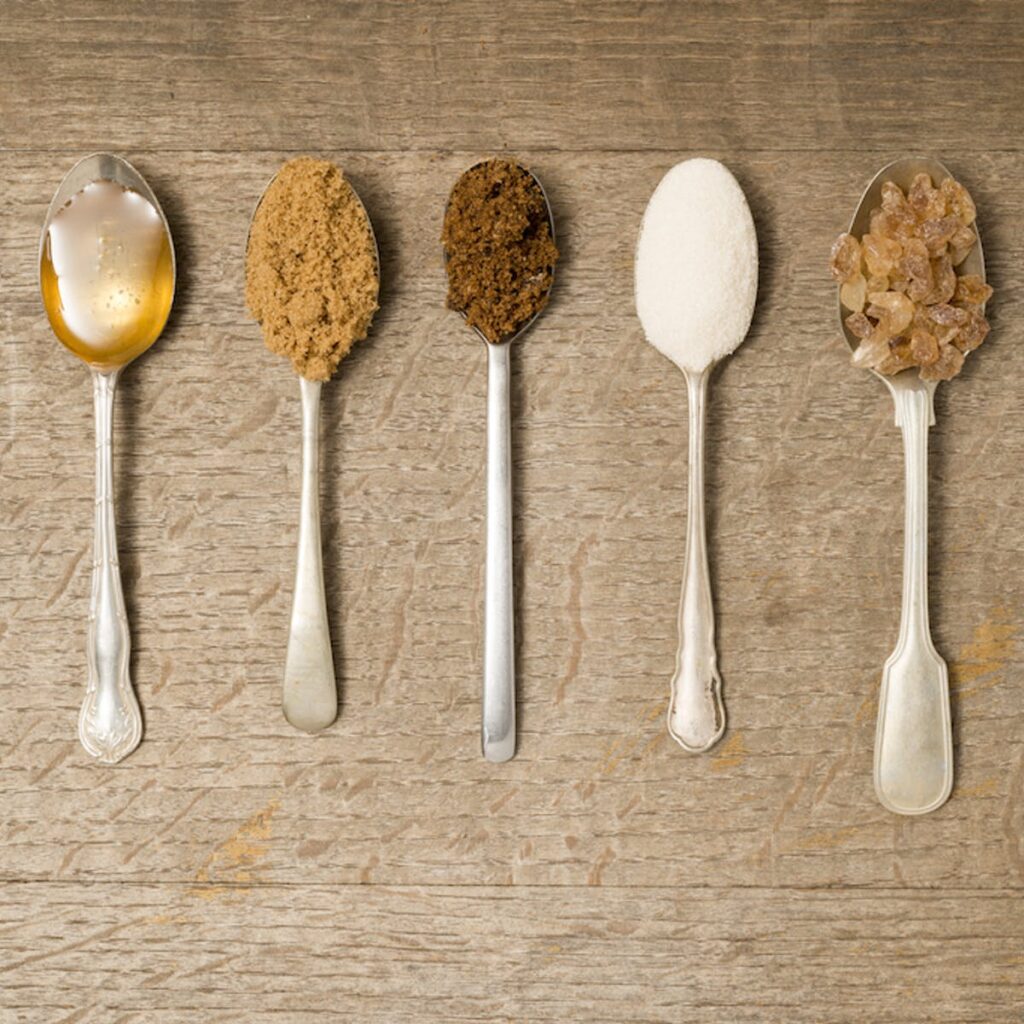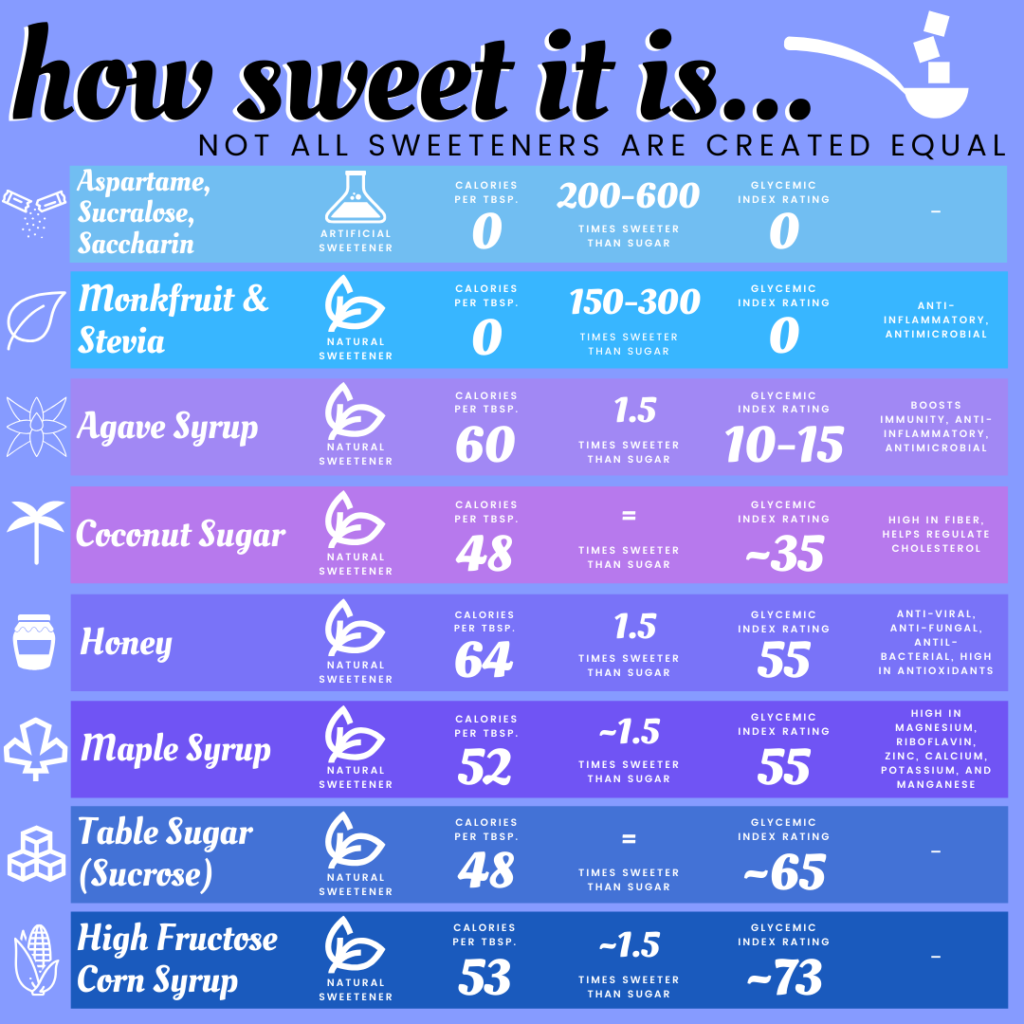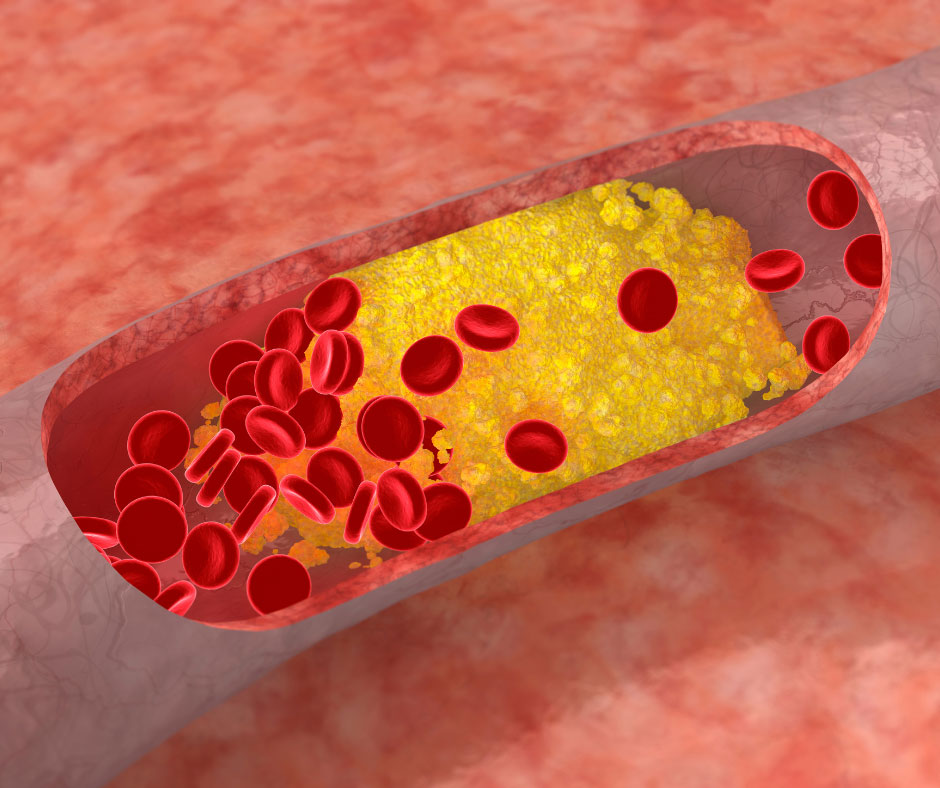When it comes to health, sugar has always had a bad reputation.
The sweet stuff has been labeled “empty calories” as it does not provide fiber, vitamins, minerals, or any other nutrients.
Even worse, a diet high in sugar has been proven to raise your risk of heart disease, regardless of your age, gender, physical activity level, and even your weight.
But what about sugars labeled as “healthy”? Unrefined, coconut, agave, honey. Do these all carry the same negative properties as table sugar?
We decided to find out.
Natural occurring sugar can be found in any food that contains carbohydrates. This includes fruits, vegetables, grains, and dairy. However, these foods all also are packed with nutrients such as fiber, minerals, antioxidants, calcium, and protein.
Sugar consumption becomes a problem when the sugar comes from processed foods.
A 15-year study published in JAMA Internal Medicine found that people who got 17% to 21% of their calories from added sugar had a 38% higher risk of dying from cardiovascular disease compared to those who consumed 8% of their calories as added sugar. The study was spearheaded by Dr. Frank Hu, professor of nutrition at the Harvard T.T. Chan School of Public Health.
“Basically, the higher the intake of added sugar, the higher the risk for heart disease,” says Dr. Hu.
Harvard Health Publishing
The American Heart Association suggests that the average American woman should consume less than 100 calories of added sugar per day (about 6 teaspoons & 25g) and men should consume less than 150 calories per day (about 9 teaspoons & 36g).
Daily, the average American adult consumes over 17 teaspoons of sugar that have been added to their food and drinks, the equivalent of 272 calories. Put simply, less than 10% of our daily calories consumed should come from added sugars.
Increased sugar consumption not only means increased calorie consumption, but it can also point to higher blood sugar levels. Consistent high blood sugar levels haven been proven to lead to higher blood pressure, raising your risk of cardiac complications.
Check out this amazing Sugar Overload Calculator from Healthy Food America to see how much sugar is in food that you may eat every day!

WHAT ABOUT OTHER SUGARS?
Here’s the deal: Foods that are higher on the glycemic index, have a greater ability to raise blood sugar. So, we aim for sweeteners that are lower on the glycemic index. The best part? Most natural sugars are lower on the glycemic index than table sugar, possess less calories than table sugar, offer additional nutritional benefits, AND they are sweeter than table sugar meaning we can use less of them to achieve the same level of sweetness.
Check out our “How Sweet It Is” infographic to quickly see how not all sweeteners are created equal!

Substituting natural, sugars that fall lower on the glycemic index may mean changing quantities, but the results are equally delicious!
We even took the table sugar out of everyone’s favorite viral treat: DALGONA COFFEE!
If you’re curious about how much sugar you consume in a day, take a look at this chart from The Huffington Post!

At the end of the day, we all need to watch our sugar consumption. The easiest way to cut back on the sweet stuff is to stay away from foods that are processed and focus on eating whole ingredients. This way, you have complete control over the amount of sugar you consume!
You don’t need any extra sugar—We think you’re sweet enough already!
References:
The American Heart Association: https://www.heart.org/en/healthy-living/healthy-eating/eat-smart/sugar/added-sugars
Harvard Health Publishing: https://www.health.harvard.edu/heart-health/the-sweet-danger-of-sugar
Harvard Health Publishing: https://www.health.harvard.edu/blog/eating-too-much-added-sugar-increases-the-risk-of-dying-with-heart-disease-201402067021
Harvard Health Publishing: https://www.health.harvard.edu/staying-healthy/healthy-diet-is-glycemic-index-the-key
Healthline :https://www.healthline.com/nutrition/stevia-vs-sugar
Healthy Food America: http://www.healthyfoodamerica.org/sugar_calculator
The Huffington Post: https://www.huffpost.com/entry/how-much-sugar-in-food_n_57fd33f4e4b07d0498acffd2
The National Institute of Health: https://newsinhealth.nih.gov/special-issues/eating/sweet-stuff
Science Daily: https://www.sciencedaily.com/releases/2016/01/160105101902.htm









